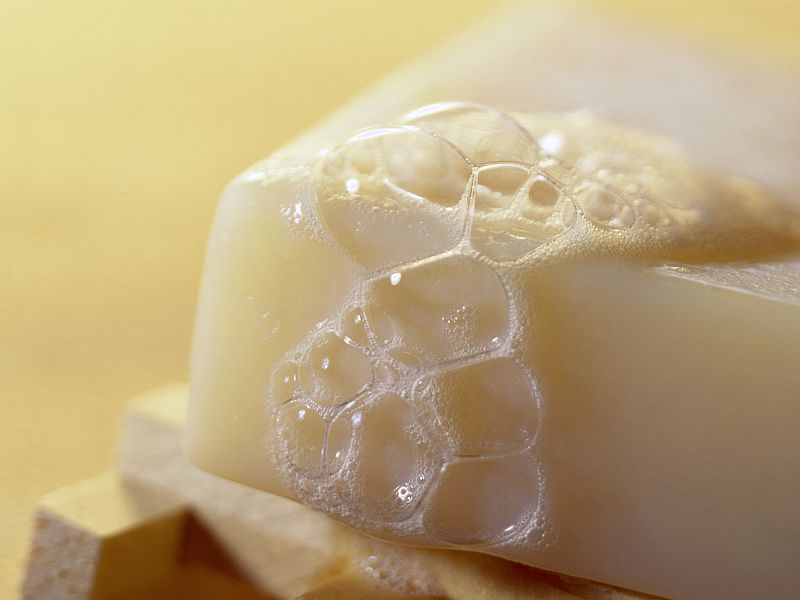

Group Urges Tougher Limits on Chemical in Shampoos, Cosmetics
Triclosan isn't proven safe or effective, coalition of scientists from 29 countries saysTuesday, June 20, 2017

TUESDAY, June 20, 2017 (HealthDay News) -- The germ-fighting chemical triclosan has got to go, an international coalition of scientists claims.
Triclosan is found in thousands of products ranging from soap and cosmetics to toothpaste and common household items.
But evidence has shown that antimicrobials like triclosan not only fall short in killing bacteria, but they may also harm human health, the coalition said in urging much stricter limits on use of the chemical.
This follows action last year by the U.S. Food and Drug Administration to ban triclosan, triclocarban and 17 other microbial agents from hand soap and body wash sold in the United States because they "are not generally recognized as safe and effective."
The FDA's move prompted major manufacturers -- such as Johnson & Johnson and Procter & Gamble -- to begin phasing them out.
But triclosan still is found in hundreds of consumer products, from shampoos to serving utensils, toothpaste and toys. The chemicals are intended to help reduce the spread of illness and infection.
"Other ongoing uses are not addressed by the recent FDA action, and more needs to be done," said David Andrews, a senior scientist at Environmental Working Group (EWG), in Washington, D.C.
EWG, an environmental research and advocacy group, signed the 25-page statement calling for the ban. It was published in the June 20 issue of Environmental Health Perspectives.
While some products that contain triclosan -- such as cosmetics, toothpaste, soaps and shampoos -- are FDA-regulated, others are not. They include clothing, credit cards, cutting boards, blankets, mattresses, bathtubs, furniture and toys. There is no limit on use of triclosan and triclocarban in household or building products.
Those who are calling for the ban say this is a big problem.
"For decades," said Andrews, "the American public has been led to believe that antimicrobial products would make us safer and healthier," despite evidence suggesting the opposite may be true.
The FDA says most of that evidence comes from animal research. It suggests triclosan may cause levels of thyroid hormone to drop, lead to antibiotic resistance and increase the risk of skin cancer.
The coalition wants the chemicals to be listed on labels of all consumer products that contain them, and it wants the FDA and U.S. Environmental Protection Agency to restrict unnecessary use, Andrews said. The statement says antibacterials should only be used when they provide a proven health benefit, such as in some clinical settings.
A spokesman for the American Cleaning Institute downplayed the coalition's statement. He said the concerns about triclosan and triclocarban have already been addressed.
"This document is outdated and does not reflect the current state of science and regulation," said Brian Sansoni, vice president of sustainability initiatives with the Washington,D.C.-based trade association.
He said manufacturers of antibacterial soaps began phasing out the ingredients even before the September 2016 FDA ban. They are using other germ-fighting ingredients and are submitting updated scientific data about their safety and efficiency, as requested by the FDA, he added.
"Every day, antibacterial soaps are used in homes, hospitals, health care settings, offices, schools, child care centers and many other commercial settings to help protect against the spread of infectious disease," Sansoni said. "Consumers can continue to use these products with confidence."
Sansoni noted the institute can only speak to triclosan use in cleaning products. "To be clear," he added, "if the products were not safe, when used as directed, they would not be on the shelves to begin with."
Meanwhile, the FDA acknowledges that research has found some benefit from triclosan. For example, toothpastes that contain it do help control the gum disease known as gingivitis.
But the FDA says there is no evidence that soaps with the chemical have stronger antibacterial properties than normal soap. Nor has the FDA found any proof that triclosan improves antiseptic performance.
SOURCES: David Andrews, Ph.D., senior scientist, Environmental Working Group (EWG), Washington, D.C.; Brian Sansoni, vice president, sustainability initiatives, and vice president, communication & membership, American Cleaning Institute, Washington, DC; June 20, 2017, Environmental Health Perspectives
HealthDay
Copyright (c) 2017 HealthDay. All rights reserved.
News stories are written and provided by HealthDay and do not reflect federal policy, the views of MedlinePlus, the National Library of Medicine, the National Institutes of Health, or the U.S. Department of Health and Human Services.
- More Health News on
- Cosmetics
- Household Products



























.png)












No hay comentarios:
Publicar un comentario